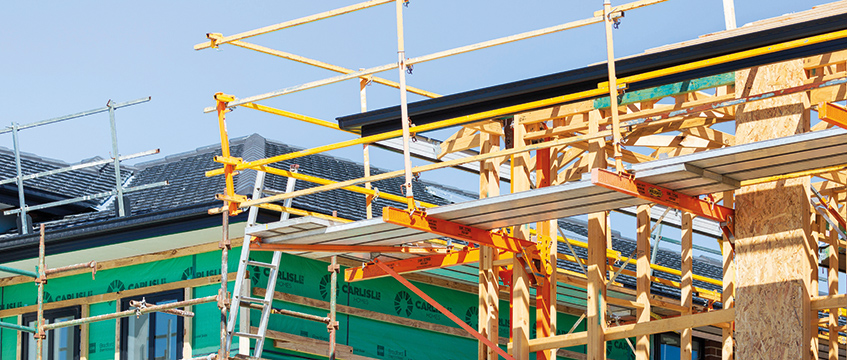 With an insatiable appetite by successive governments for policy reform, the ever-changing housing and planning landscape can be difficult to keep up with. From high level manifesto commitments, to technical regulations and implementation, there always seems to be something under review or being changed.
With an insatiable appetite by successive governments for policy reform, the ever-changing housing and planning landscape can be difficult to keep up with. From high level manifesto commitments, to technical regulations and implementation, there always seems to be something under review or being changed.
It is unlikely this is going to change any time soon.
I have been fortunate enough to have been an insider on much of the discussion surrounding London and national planning policy. Trying to influence government decision-making was often challenging, but it was also rewarding to know that you had pushed on an issue that was important to the industry and society.
Having switched from policymaker to project deliverer, it is easy to understand why the property industry gets frustrated with the planning process, especially at a time, as now, when a number of expected changes may or may not happen, and we await further direction and consultation from the soon to be published housing white paper.
For those setting the policy, the constant challenge is getting the balance right between speed versus regulation and local power versus a national outlook. For the developers and their advisory teams, much time is spent analysing the regulations and looking for the best way to navigate the process with the highest chance of a successful outcome.
Where some developers often come into problems is that they have a tendency to decide what they want to do, without doing the homework to understand how that fits in with the local dynamics of an area. A key component that is never given enough time or importance is in fostering stakeholder relationships, especially between different tiers of government.
Good stakeholder management with local councillors, planning officers and the local community will also help to de-risk conflict between the applicant and the authority. More often than not, applicants are trying to second guess what is needed to unlock a scheme or bring forward a new development, without real dialogue in a local area.
The Neighbourhood Planning Bill and the devolution of powers to local governments is going to result in very different planning priorities from city to city, and is an indication that the localism agenda is not going away. Therefore, having a proper understanding of the wants and needs of an area can mean the difference between an adversarial lengthy planning process and one that can run smoothly, on time and without additional costs or delay.
In London, we are only just starting to see Sadiq Khan stamp his mark on development with the recent publication of his London Plan blueprint. What is clear is that local authorities are being encouraged to challenge developers’ viability assessments and squeeze the most out of planning gain derived from development. As a result, open dialogue through good stakeholder management is already becoming increasingly necessary.
As big ticket infrastructure projects begin to materialise across London and the rest of the UK, there will inevitably be a look at how land value capture from development can be introduced.
For me, the emphasis on collaboration and conversation between the development team and the policy keepers is exciting. Having spent so long helping to shape policy, I look forward to bringing together the principles with the practical application and working with clients to help them navigate their planning applications in the most efficient way.
I think planning policy remains a fluctuating beast, we have the Housing and Planning Act 2016 to see commenced, a new bill making its way through parliament and further reforms expected on the back of the Housing White Paper. The more the industry can work together with the government to ensure that any future changes are fit for purpose, the better the process is going to become.
• Faraz Baber is director at Terence O’Rourke










